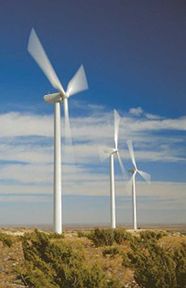This past Friday, April 1, the Clean Energy Campaign at UMass Boston joined hundreds of other student organizations, and thousands of concerned citizens across the United States, Canada, and the United Kingdom for the second annual Fossil Fools Day.
The web-based demonstration, known as Fossil Fools Day, is a collaboration of different environmental organizations, including the Sierra Club, Energy Action, Rainforest Action Network, and Global Exchange, is aimed at reducing worldwide fossil fuel consumption. Participants discussed and implemented different strategies for reducing pollution. One action item was “Adopt-A-Dealer,” where participants “adopted” their local Ford Dealer to demand cleaner Ford vehicles, which have the worst fuel efficiency among America’s major automobiles. A similar initiative is underway on campus to get the University to invest in “green tags.”
Green tags are renewable energy certificates, which can be remotely purchased from around the world wherever clean, renewable energy is being generated. The purchased clean energy (e.g. wind power) will go into a power grid on the buyer’s behalf. Even though the buyer may not directly receive the clean energy, s/he still benefits by reducing the pollution inevitable with the burning of fossil fuels.
The greatest cause of global warming, or “global climate change,” is through the production of dirty energy. It is important for the health of the planet that homes, businesses, and schools switch to green energy, either through their local utility, or by purchasing and installing solar panels, wind turbines, and hydrogen systems. Unfortunately, most energy providers do not have a 100 percent renewable energy program. Such is the case at UMass Boston, which gets its energy from NStar. This is where green tags come in: by purchasing green tags, the University of Massachusetts Boston would be a forerunner in renewable energy investment.
Since the Industrial Revolution, and the proliferation of technologies, the world has become increasingly dependent on fossil fuels. The by-products of their rampant consumption have been linked to many public health problems, including increased asthma rates in urban areas. Asthma affects over 17 million Americans, and accounts for $14 billion annually in direct and indirect costs to our economy through medical expenses and losses in productivity. Gradually terminating the use of fossil fuels and investing in clean and renewable energy is a logical choice for a sustainable future.
Findings from an international report by 1,360 specialists from 95 different nations indicated that human activities like fossil fuel consumption continue to harm the environment: “At the heart of this assessment is a stark warning,” said the 45-member board of the Millennium Ecosystem Assessment. “Human activity is putting such strain on the natural functions of Earth that the ability of the planet’s ecosystems to sustain future generations can no longer be taken for granted.”
Although the Clean Energy Campaign at UMass Boston is new and relatively small, interest is mounting and a coalition is gradually emerging. The Clean Energy Campaign in conjunction with the Sustainability Club will co-host a general meeting to be held on Wednesday, April 13 in the Harbor Art Gallery (McCormack Hall, first floor) at 3:30 p.m. in order to address what actions can be taken on campus. The meeting will also address activities for Earth Day, which is April 22.





















































